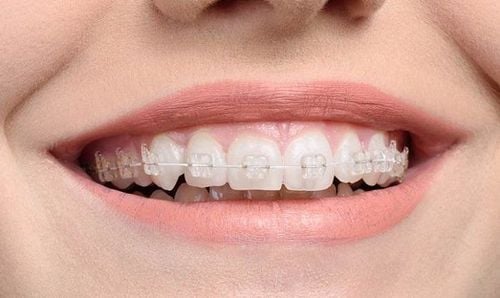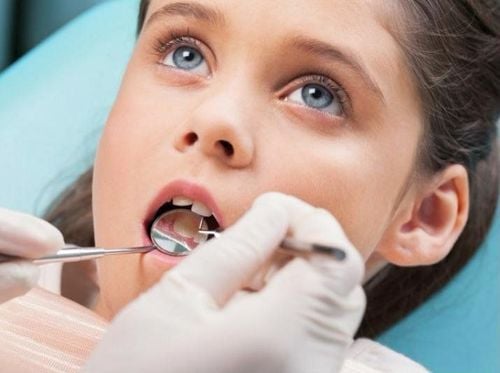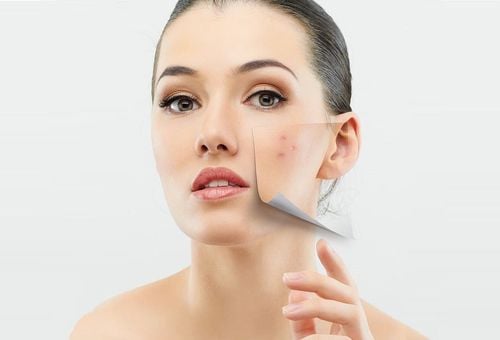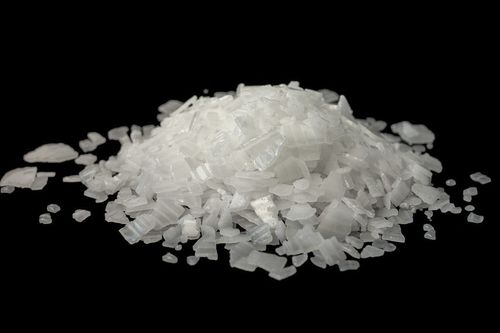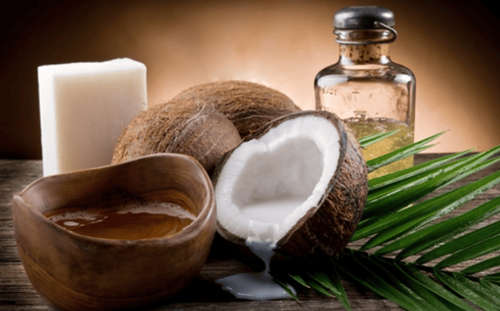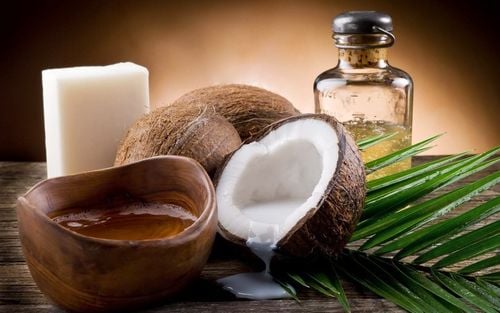This is an automatically translated article.
Facial skin care is one of the indispensable daily tasks of women. A proper facial care process and choosing the right facial cosmetics will help keep skin healthy, smooth, bright, and avoid irritation. So what should not be applied to the skin?1. Hydrogen peroxide
Hydrogen peroxide is a very common liquid oxidant. It has the effect of killing bacteria that live on the skin of the face. However, hydrogen peroxide can damage skin cells, including the fibroblasts that help create new tissue and heal wounds. Therefore, do not let the hydrogen peroxide solution get on the skin of the face, do not use it to clean cuts and scrapes. In fact, Hydrogen peroxide can irritate your delicate skin, so if it accidentally gets on your face, wash it off with water and cleanser.2. Breast milk
Breast milk has long been known for its health benefits for infants. Now, some spas are offering breast milk facials to calm breakouts and soothe skin. In fact, breast milk will not harm the skin of the face, but there is no research or proof that breast milk can be used in a skin care routine. Therefore, it is better to use creams or other products containing lauric acid to replace the fatty compound found in breast milk.3. Witch hazel
Witch hazel is one of the plants used in popular natural remedies to treat acne, tighten pores, and fight oiliness. Witch hazel acts as an astringent, a chemical that causes your skin tissue to contract. Toners contain ingredients of witch hazel to remove all the natural oils from your skin.This can lead to irritation, dryness and even an allergic reaction. Therefore, when choosing a toner, you should also consider ingredients containing witch hazel to suit your skin.
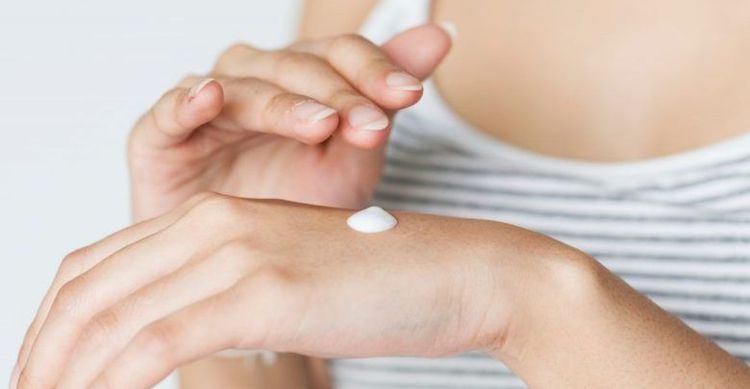
Các loại mỹ phẩm chứa thành phần cây phỉ có thể khiến bạn bị kích ứng, khô da
4. Hydrocortisone cream
Hydrocortisone cream is a balm for red, itchy, swollen skin. So you'll probably use it on top if you have rosacea or similar conditions. However, steroid creams have the side effect of thinning the skin, so the blood vessels in your face are more likely to burst. Besides, it can also force your oil glands to be overactive, leading to steroid-induced acne. You can apply a small amount to the bite and itchy rash for a day or two, but should not be used in your skin care routine unless directed by your doctor.5. Deodorant
Sweat on the eyebrows, cheeks, forehead often appears a lot when active and can cause body odor. Many people often use deodorant even on their face to get rid of bad odors. However, this can lead to clogged pores and breakouts. The skin on your face is also sensitive and you may be allergic to deodorant. Instead, see a dermatologist who can control sweat glands with prescription medication or Botox.6. Honey
Honey is a remedy that has been used to treat wounds since ancient times. Nowadays, some people often use honey applied to the skin to get rid of acne. Because, honey works to help prevent bacteria and reduce inflammation, but not very effective. One study found that honey was no better than antibacterial soap. If not applied properly, honey creates a sweet environment favorable for bacteria growth and is counterproductive. So if you still want to give it a try, look for manuka honey with a rating of at least 10 UMF to ensure it has enough strength against bacteria.7. Hair dye
If you color your hair, you may want your eyebrows to match. Homemade hair dye has a lot of peroxide, so it can cause it to stick to your face during manipulation. You could burn the surrounding skin or even injure your eyes. Instead, look for tinted brow gel at your drugstore, or coat your brows with a light coat of mascara or eyeshadow.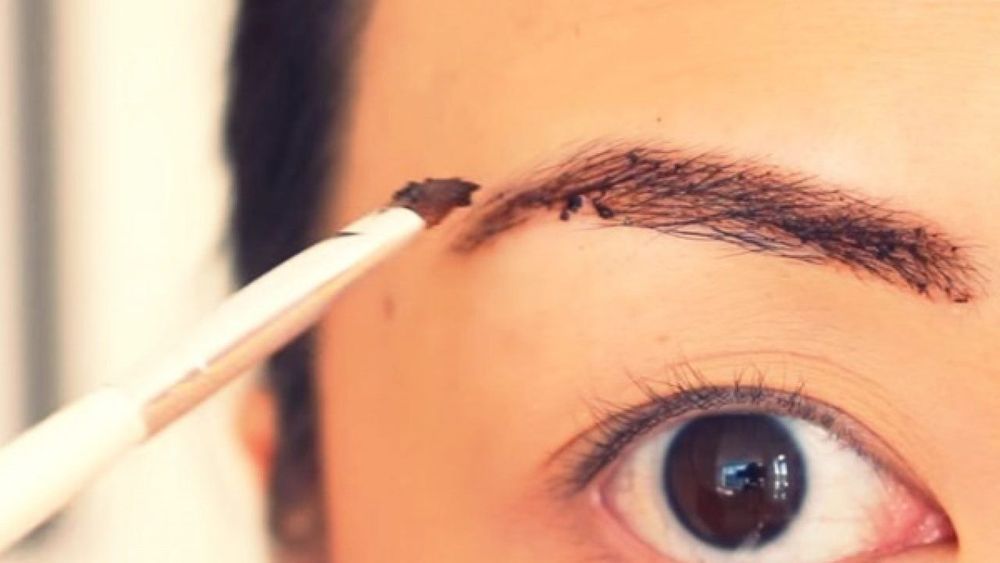
Hãy cân nhắc nếu bạn muốn nhuộm lông mày bằng thuốc nhuộm tóc
8. Urine
Devotees believe that their urine is the secret to smooth, toned and unclogged skin. This is completely false because urine is made up mainly of water and a compound called urea. Furthermore, the hygiene of urine is not guaranteed.Many creams and lotions contain a lab-made form of urea that binds to moisture in the air and draws moisture from the skin leading to dryness. Therefore, you must absolutely not be superstitious and read unorthodox sources on the internet about using urine for skin care.
9. Hair spray
Hairspray is widely used in makeup and hair styling. During use, it may stick to the skin of the face. The same ingredients that make hair sticky can also dry out your skin or cause an allergic reaction. Therefore, during use, you should be careful to avoid sticking to the skin of the face.10. Lemonade
Lemon juice is rich in vitamin C, which can lighten the skin and fade wrinkles. But lemon juice is acidic and can irritate facial skin. In addition, you may also develop a rash from phytophotodermatitis. A skin reaction will occur if you expose substances contained in certain plants and fruits to sunlight, or other ultraviolet rays. This rash will go away on its own but can be irritating to the skin. Therefore, do not use lemon juice to apply directly on the face.11. Coconut oil
If you believe in the advertising that coconut oil is a panacea for beautiful skin, you are completely wrong. In fact, coconut oil is rich in lauric acid, which has been shown to be effective against pimples. However, coconut oil contains about 90% saturated fat, which can clog pores if used for facial skin.One study showed that coconut oil can relieve severe skin dryness or eczema. However, coconut oil should not be used on the face to avoid clogging pores and acne.
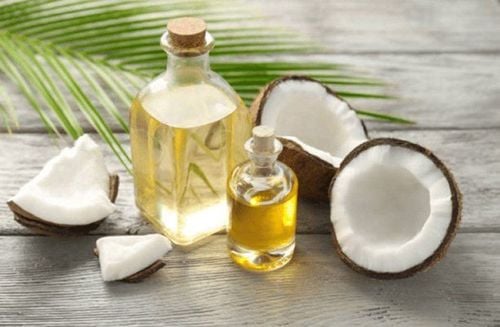
Bôi dầu dừa lên mặt có thể gây tắc nghẽn lỗ chân lông
12. The water is too hot
Wash your face according to Goldilocks rule that is not too hot, not too cold but must be used in moderation. In fact, water at high temperatures dehydrates your skin. When that happens, the oil glands in the skin try to replace it by secreting more oil. It eventually leads to oily, greasy, and acne-prone skin. Therefore, in the process of skin care should be careful not to use water that is too hot.13. Body lotion
If you run out of facial moisturizer, you may want to replace it with a body lotion. Most body lotions are thicker so they are more likely to clog pores.Besides, they can also have fragrance or other ingredients that cause allergic reactions on thinner skin like on the face. Therefore, you should check the information and instructions for use before using it on your face to ensure safety and avoid irritation.
14. Glue
Currently, on social networks, there is information about turning school glue into a mask to treat blackheads. Specifically, people spread a white glue around the problem skin areas, let it dry and then peel it off. However, this is a completely false information and glue will not be able to clean the pores. Moreover, using glue can cause your skin to become irritated or blood vessels to burst. More dangerously, you can accidentally strip away the pH coating on the surface of your skin.15. Manicure
Some people may use nail polish as an alternative to face paint at Halloween or for costume parties. However, you should not use nail polish on your face. Because, most nail polish contains ingredients like acetate and formaldehyde that can irritate the skin. To clean, you'll need to use a nail polish remover that has chemicals like acetone, which can thin your face and cause irritation. Therefore, nail polish should not be used as a substitute for makeup applied to the face.In short, facial skin care is not an easy task. To own a healthy skin, you must not only follow the right process, choose the right skin care products, but also avoid chemicals that are harmful to facial skin such as hydrogen peroxide, lemon juice, coconut oil, etc. ... So, if you have any questions about skin care or facial cosmetics, go to a medical facility specialized in dermatology for answers and in-depth advice.
Please dial HOTLINE for more information or register for an appointment HERE. Download MyVinmec app to make appointments faster and to manage your bookings easily.
Reference source: webmd.com



